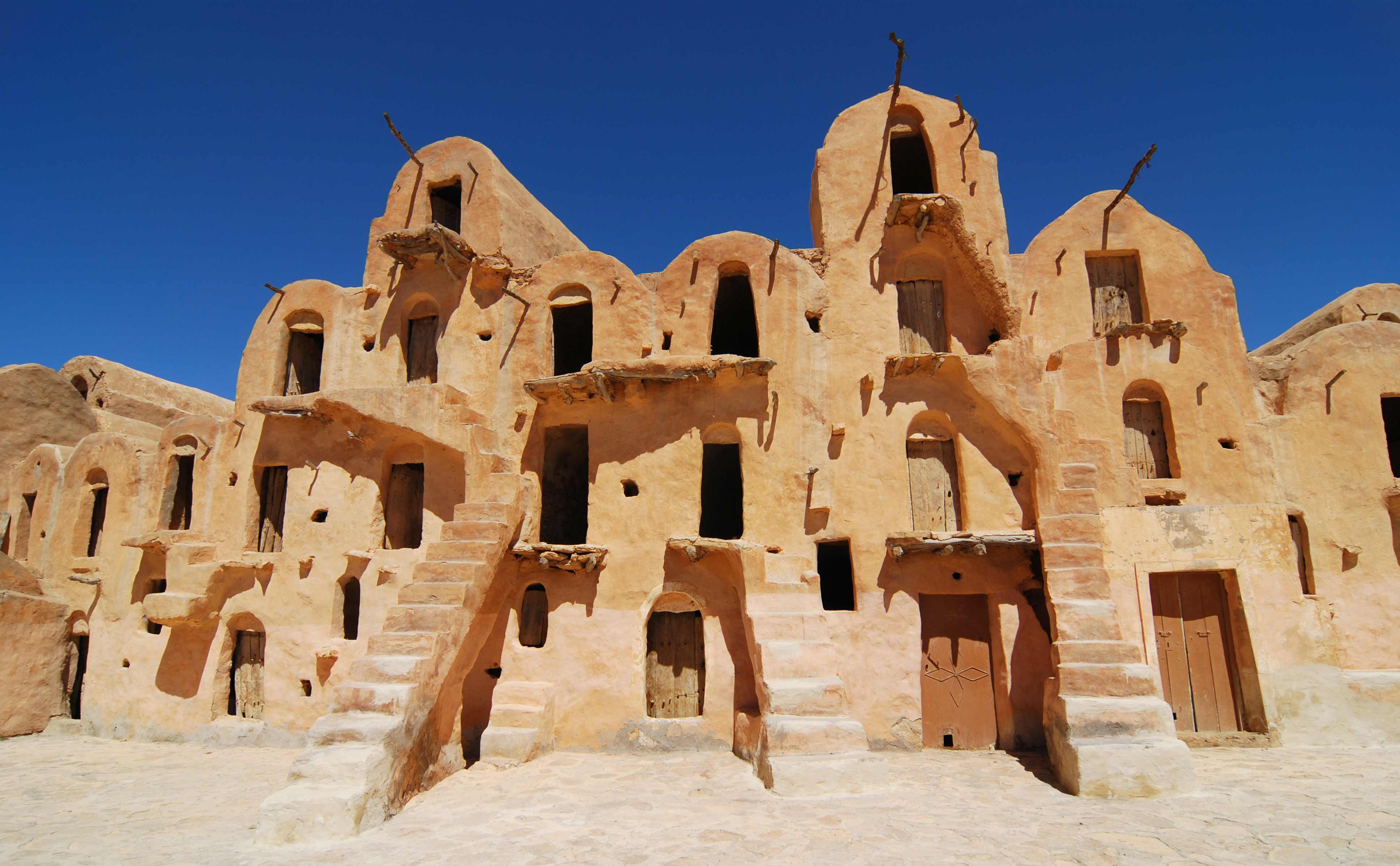Culture & Traditions
A vibrant tapestry of Berber roots, Arab influences, and colonial history.
Tunisia's culture is a colorful mosaic, woven from its Berber roots, Arab influences, and European colonial history. This blend is evident in the country's architecture, languages, and daily life.
Berber Beginnings and Arab Accents
The indigenous Berber culture remains vibrant, especially in rural areas where traditional lifestyles continue. The Arab conquest brought Islam and the Arabic language, which now coexist with French from the colonial era, creating a multilingual society.
Cultural Crossroads
From the medinas and mosques to the remnants of Roman cities, Tunisia's buildings tell stories of conquest and culture. The country's arts scene reflects this diversity, with music ranging from classical Malouf to modern rap, and crafts like pottery and textiles showcasing intricate designs passed down through generations.
Festivals and Feasts
Tunisia's calendar is dotted with festivals celebrating everything from the harvest to religious events, often accompanied by music, dancing, and copious amounts of food.
Modern Movements and Social Fabric
Today, Tunisia is seen as a progressive Arab nation, especially after the Arab Spring which began here in 2010. Women's rights, freedom of expression, and a growing emphasis on education reflect the nation's forward-thinking attitudes.
Travel Stories
Get inspired about Your Trip to Tunisia
Unlock more by subscribing to our newsletter.
With our newsletter, you’ll get access to regular communications that inspire you and help you explore the world your way.



